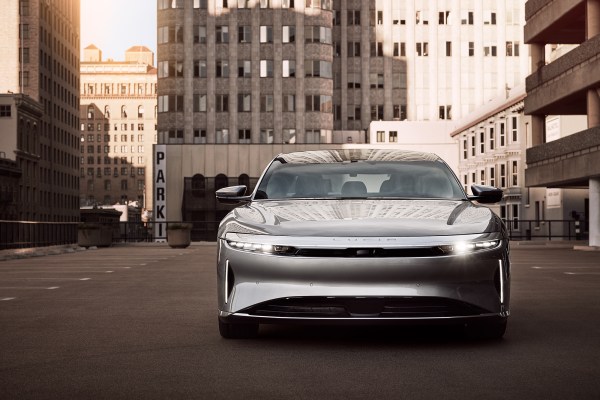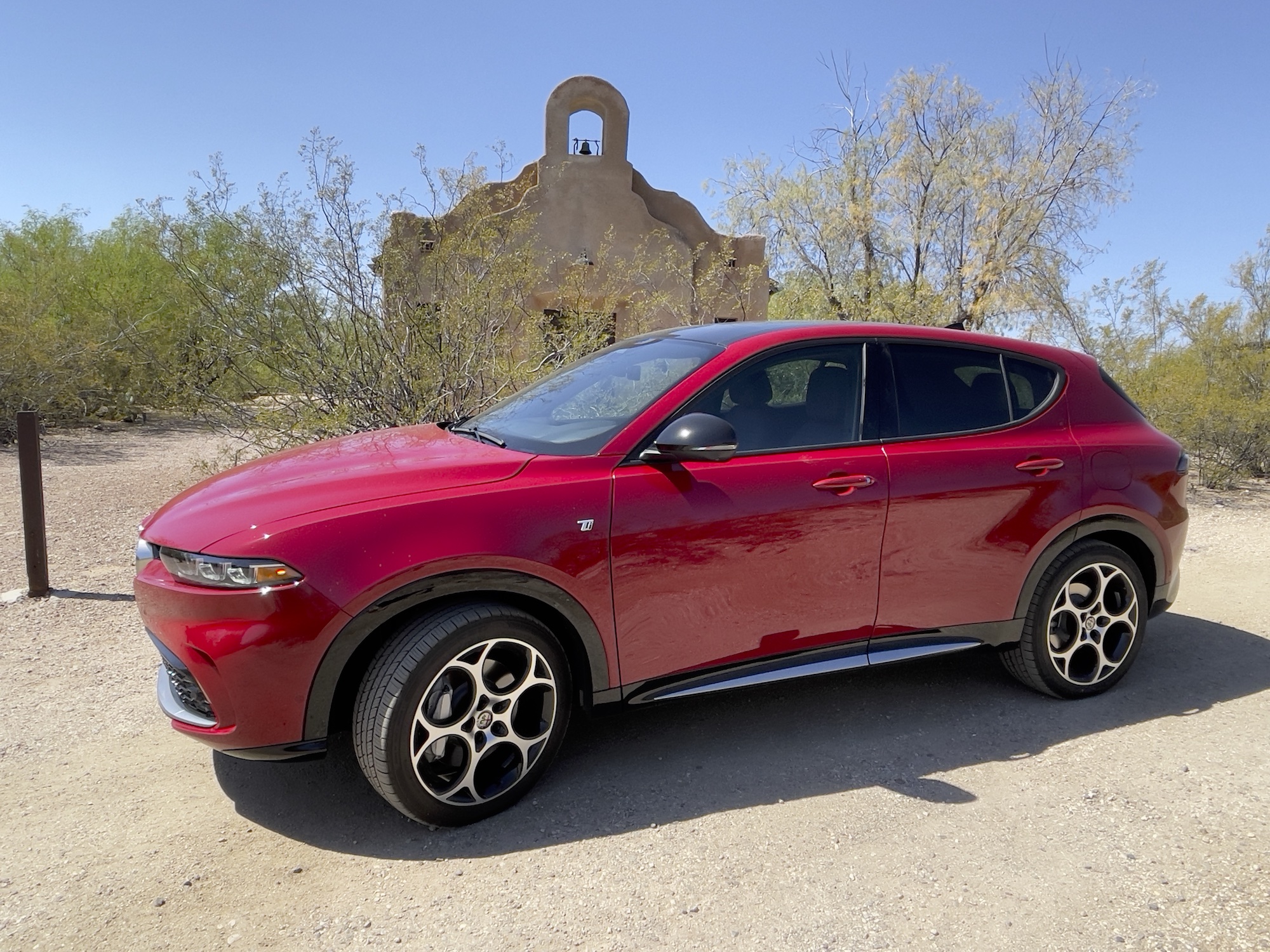The Station is a weekly newsletter dedicated to all things transportation. Sign up here — just click The Station — to receive the full edition of the newsletter every weekend in your inbox. Subscribe for free.
Welcome back to The Station, your central hub for all past, present and future means of moving people and packages from Point A to Point B.
Not all of our readers are in the United States. But for those who are (or are Americans living abroad) happy 4th of July! It’s a busy travel weekend — be safe out there on the roads.
A couple of items before we jump into the rest of the news. I would be remiss not to mention the death of John B. Goodenough, the creator of the lithium-ion battery and a Nobel Prize winner. Without his critical work, we wouldn’t have rechargeable lithium-ion batteries and all the products that are powered by them.
Another story you might have missed is a feature article about Porsche and how CEO Oliver Blume thinks the company can achieve greater profit margins and push into the luxury segment. (The automaker has traditionally put itself in a performance category.)
OK, let’s dive in.
Want to reach out with a tip, comment or complaint? Email Kirsten at kirsten.korosec@techcrunch.com. You also can send a direct message to @kirstenkorosec.
Reminder that you can drop us a note at tips@techcrunch.com. If you prefer to remain anonymous, click here to contact us, which includes SecureDrop (instructions here) and various encrypted messaging apps.
Micromobbin’
After a series of deadly fires, New York City is getting a $25 million emergency grant from the federal government to fund the installation of 170 micromobility charging and storage stations in 50 locations. The goal is to provide delivery workers, who rely on e-bikes, safe places to recharge the lithium batteries that power their vehicles.
NYC also recently issued a citywide ban on the sale of non-UL certified batteries, so the combination of these initiatives should help curb the spread of e-bike battery fires.
Outside New York, a new bipartisan bill in the U.S. Senate would limit the import of unregulated e-bikes and batteries into the U.S. Today, China and other countries can sell products directly to U.S. consumers without customs and border patrol inspections if the products are under $800. A sub-$800 e-bike is exactly the type of bike that’s more likely to have an uncertified battery or a poor battery management system.
Of course, the reason e-bikes have been causing so many fires is complicated, and not just a result of cheap bikes. It’s also the product of overcharging, misuse and mishandling. I plan to do a deep dive on this in the future, so stay tuned, but in the meantime, some tips to stay safe in this issue of The Station.
In other news . . .
Bird founder Travis VanderZanden has left the nest. The former CEO and president’s slow-motion departure from Bird is now complete after stepping down from his role as chairperson of Bird’s board, “effective immediately.” John Bitove is replacing VanderZanden.
Connecticut’s e-bike rebate program has begun, and eligible residents can get up to $1,500 in incentives.
Gogoro, the Taiwanese scooter battery–swapping company, is eyeing a $1.5 billion deal with India’s Maharashtra state to manufacture electric vehicles, smart battery packs and battery swap stations, and deploy an open and accessible battery swapping infrastructure in the state later this year.
Italy is cracking down on e-scooters. The proposed rules would require owners to have insurance and for scooters to have a registration plate and be equipped with turn signals. Riders would also be required to wear a helmet.
A new McKinsey survey found that 30% of global mobility users are planning to boost their usage of micromobility, and 27% would consider using microcars in the coming decade. The battle is not yet won, but the progress is steady.
Yadea, the Chinese e-scooter brand, is getting ready to invest up to $1 billion in its first factory in the Philippines. The Philippines will be a hot new market for Yadea. The company already has six facilities in China and one in Vietnam.
— Rebecca Bellan
Deal of the week
Two Chinese IPOs got my attention this week. RoboSense, the Chinese lidar company, and Black Sesame the chipmaker that focuses on autonomous vehicle systems, have filed to go public with the Hong Kong Stock Exchange.
One item to note on Black Sesame. This looks like the first to file under a new IPO framework called Chapter 18C, for “specialist technology” companies that have yet to meet required revenue levels of at least 500 million Hong Kong dollars ($63.8 million). According to its preliminary prospectus, the company generated $177.75 Hong Kong dollars in 2022 (or $165.4 RMB).
Black Sesame and RoboSense didn’t disclose how much they want to raise from their respective listings.
Other deals . . .
Faraday Future has managed to raise more money. How? No, really, I’m asking a serious question here. The beleaguered EV SPAC said it raised $90 million from existing investors to help it get its much-delayed FF 91 luxury electric SUV to production and delivery.
General Motors acquired Israel-based software startup Algolion for an undisclosed sum. The company developed software that can detect potential hazards in battery cells. Algolion’s six employees, including the company’s founders, will remain based in Israel and join more than 850 employees at the GM Technical Center in Herzliya, Israel.
Joby received a $100 million equity investment South Korean telecommunications company SK Telecom. This is an expansion of Joby‘s existing partnership with SK Telecom, which began in February 2022.
NoTraffic, an AI-based traffic management platform, raised $50 million in a Series B funding round led by M&G Investments with participation from VNV Global and UMC Capital. Existing investors Grove Ventures, Vektor Partners, Next Gear Ventures, North First Ventures, Meitav Investment House, Alchimia Investments and TMG also joined in the round.
Nuvocargo, a Mexican digital logistics platform, raised $36.5 million in a Series B round with a valuation of $250 million.
Service4Charger, a Berlin-based startup that installs, operates and maintains EV charging infrastructure, raised €10 million in a Series A funding round. BP Ventures invested €7.5 million ($8.2 million) into the company, while Smart Energy Innovationsfonds, the corporate venture capital arm of Energie 360, invested the remaining €2.5 million ($2.73 million).
Notable reads and other tidbits
Autonomous vehicles
Car and Driver dug up some fresh evidence that suggests the not-so-secret, secret Apple car project is still chugging along and even testing out in Arizona.
Halo.Car, a startup that uses remote operators to deliver rental cars to a customer’s door, has launched driverless operations in Las Vegas.
Police departments have issued warrants to Cruise and Waymo asking for footage from its self-driving cars, suggesting that the robotaxi is the new proving ground for privacy advocates and law enforcement, especially as companies scale to new cities.
TuSimple may sell its U.S. business as it turns more of its attention and resources to Asia.
Zoox started testing its purpose-built, electric, autonomous robotaxis on public streets in Las Vegas. The testing area is limited to a one-mile loop around the neighborhood where its facilities are located in the southwest part of the city.
Electric vehicles, charging and batteries
Lordstown Motors may be circling the drain, but it’s not going out without a fight. The EV SPAC filed for Chapter 11 bankruptcy protection in Delaware and has also sued Foxconn after failing to resolve its dispute with the Taiwanese manufacturer over a previously agreed upon investment.
Lucid landed quite the partnership — and one that could give the luxury EV maker a much needed boost. I’m talking about the deal to supply Aston Martin with powertrain components and battery technology for future electric vehicle models. The iconic British luxury automaker aims to launch an EV in 2025. TC+ reporter Tim De Chant provides analysis on what this means for Mercedes-AMG and legacy automakers.
Stellantis launched Free2move Charge, the first product under its new charging and energy management business unit that aims to handle every aspect of powering up an EV whether at home, work or on the road. The automaker was scant on details (stay tuned, execs said) and no commitment of whether it will adopt Tesla’s North American Charging Standard.
TechCrunch contributor reviewed the Mercedes-AMG S 63E, a plug-in hybrid with F1 tech.
Tesla’s North American Charging Standard (NACS) is still on a roll. Ford was first to commit to adopting the standard, followed by GM and Rivian. The latest entrants are Volvo, Polestar and (wait for it!) Electrify America, the EV charging network under VW Group.
Future of flight
Joby Aviation’s production prototype eVTOL received a special airworthiness certificate issued by the Federal Aviation Administration (FAA) and can now begin flight testing. The certificate puts the company on track to deliver its electric aircraft to customers by 2024 and commercialize an air taxi service by 2025.
Gig economy
DoorDash will give delivery workers the option to be paid a guaranteed hourly minimum rate instead of being paid per delivery — but there’s a catch.
People
Audi CEO Markus Duesmann is out. He’ll be replaced by VW Group strategy chief Gernot Döllner.
Harley-Davidson promoted Jonathan Root to CFO. He was previously senior vice president of Harley-Davidson’s financial services division.
What’s in my driveway
People have LOTS of opinions about plug-in hybrids. Are they a bridge technology for consumers to battery electric vehicles? Or are they just overpriced overly complex vehicles with two propulsions systems?
This past week I drove the 2024 Alfa Romeo Tonale AWD in the TI trim, a compact SUV equipped with a plug-in hybrid electric all-wheel-drive system that delivers 285 horsepower and fuel economy of 77 miles per gallon equivalent.
Like other PHEVs, drivers can opt for EV only mode, which in the Tonale is accessed via a dial with the letters d-n-a (dynamic, natural and advanced efficiency, that’s the EV one) on it. And like the plug-in hybrid Jeeps, a brand that’s also under Stellantis, there’s an e-save option that allows drivers to preserve all of that EV range. And like other Stellantis brands, it also has an infotainment system powered by its UConnect 5 software.
Quick thoughts. It’s very much an Alfa Romeo and certainly stands out in a crowd — there’s even some fun details like the emblem of an electrified Biscione on the back window. And the TI trim, which costs $51,790 (including the destination fee) offers some nice add-ons like interior ambient lighting, heated seats and a wireless charging pad.
The Tonale doesn’t handle quite as well as the Stelvio, though, and I found that when pressed, it rolled a bit in the corners. But really my main complaint is that the regenerative braking can’t be independently controlled. Instead, the regenerative braking setting is linked to whatever letter on the d-n-a selector you pick. Adding some paddles to the back of the steering wheel to control the regenerative braking would be a lovely addition.




